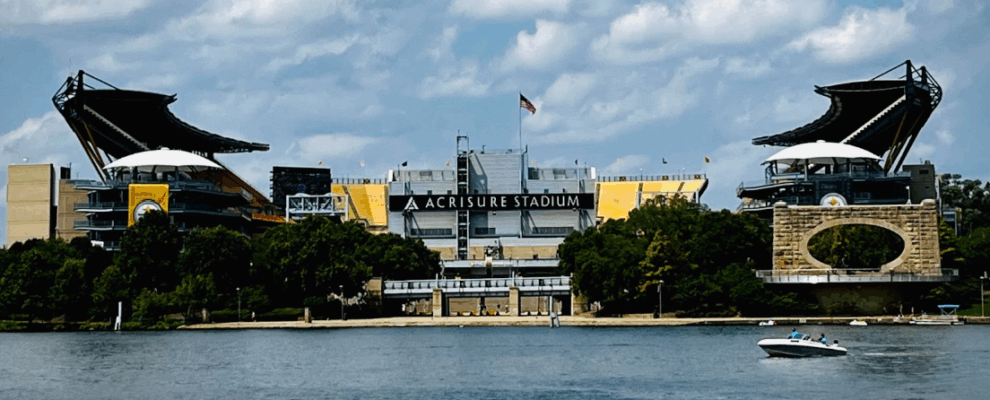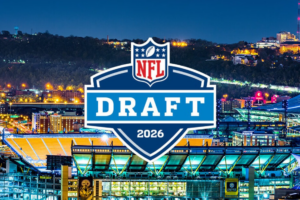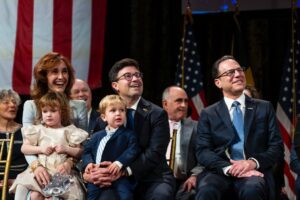The city will now have to find additional revenue sources to replace the $17 million the tax was expected to bring in from 2026 to 2030.
The Pennsylvania Supreme Court struck down Pittsburgh’s so-called “jock tax,” ruling it unconstitutional under the state’s Uniformity Clause. The tax, officially known as the Sports Facility Usage Fee, had been collected since 2005, charging a 3% surcharge on nonresident athletes and performers at city-owned venues like Acrisure Stadium, PPG Paints Arena, and PNC Park. Local athletes paid only standard city and school district income taxes. The NHL, NFL, and MLB players’ associations challenged the tax in 2019, arguing it unfairly targeted nonresidents.
The city claimed the 3% tax on nonresident athletes and performers was meant to create parity with resident athletes, who also pay a school tax. However, the state and municipalities are prohibited from applying a school district tax on nonresidents.
News: The Pennsylvania Supreme Court has ruled that the PA Usage Fee (a jock tax in Pittsburgh) is unconstitutional.#NHLPA and Kyle Palmieri were named among the appellees. Key text: Pittsburgh could not justify why they were taxing nonresident athletes and entertainers more… pic.twitter.com/ZKMmCy5tqc
— Frank Seravalli (@frank_seravalli) September 25, 2025
In its ruling, the court rejected Pittsburgh’s defense that resident athletes pay comparable taxes, affirming a lower court decision that the levy discriminated against outsiders. The city may still collect a 1% earned income tax from nonresidents, but that will recover only about one-third of the lost revenue. The decision could cost Pittsburgh millions in refunds, since athletes and performers have three years to file claims.
This is a huge win for Players. Thanks to those who brought the case, our fellow sports unions, @NFLPA and @NHLPA, and all involved for taking on Pittsburgh’s ‘jock tax’, which was deemed a violation of the Pennsylvania constitution. https://t.co/hMfH2jGYwz
— MLBPA (@MLBPA) September 27, 2025
Mayor Ed Gainey’s administration expressed disappointment, warning the ruling shifts financial burdens to residents and creates budget challenges. Political figures, including Democratic mayoral candidate Corey O’Connor and Republican candidate Tony Moreno, criticized the city for relying on a legally vulnerable tax. The decision forces Pittsburgh to reevaluate long-term financial planning.
The city also received criticism from the Tribune-Review editorial board, who argued that even if the city had implemented the tax in good faith, “the city should have been preparing for this day” rather than rely on “the Powerball theory of financial planning—just praying for a win.”
Pittsburgh’s finances face mounting strain as revenues fall, and major funding sources dry up. Downtown, once the city’s financial engine producing a quarter of real estate revenue, has been hit hard by remote work, leaving office buildings devalued. For the first time in recent memory, property tax revenue is projected to decline for five straight years. At the same time, millions in federal COVID relief will soon expire, worsening shortfalls.
In 2024, the city collected $10.6 million less than expected, leaving essential services underfunded. Fire officials warn that emergency vehicles are in “dire” condition, requiring more than $20 million annually for upgrades. The loss of the “jock tax” further compounds these challenges, shrinking available funds for critical needs.
City Controller Rachael Heisler has been raising concerns over the city’s financial state since early 2024, telling city council members the jock tax and property taxes “needed to be altered to reflect the new reality.” Earlier this year, Heisler called Pittsburgh’s fiscal situation “precarious” as the city is finding it difficult to “protect the public’s safety and provide basic services.”
City leaders, including Councilwoman Theresa Kail-Smith, stress that “every dollar matters.” They suggest freezing discretionary grants, hiring, and other spending to protect taxpayer money and maintain essential services.
Gainey’s time as mayor will end next January as O’Connor defeated the incumbent in the Democratic primary earlier this year.











